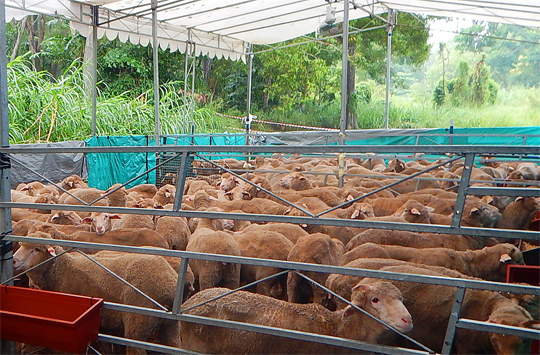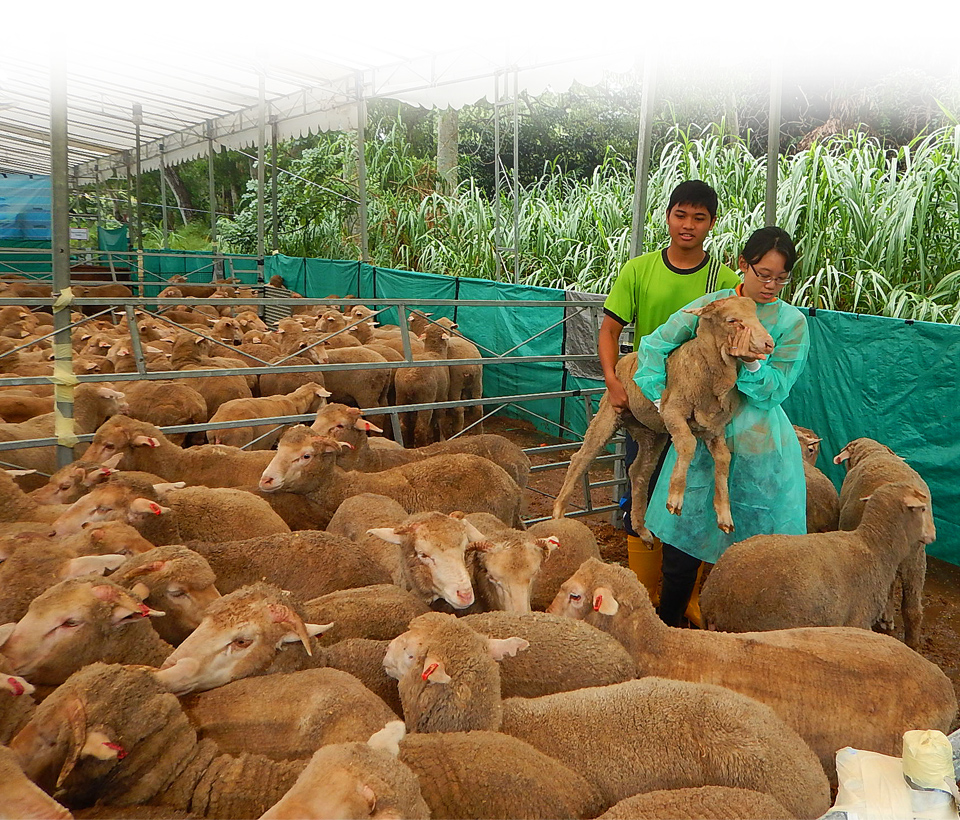Korban Livestock: Healthy Animals from More Sources
The Korban is a significant religious sacrificial rite for the local Muslim community. Meat of these slaughtered animals is usually distributed to the poor and needy in the community. As the agency responsible for Singapore’s resilience in food supply as well as guardian of animal health and welfare, AVA facilitates the diversification of sources of livestock for Korban, and ensures that all imported animals are free from diseases.
Previously, livestock for Korban slaughtering has always been imported solely from Australia for public health, animal health, and food safety reasons. Today, Australia remains the primary source of sheep, complemented by various alternative sources.
 The puppies are currently being quarantined and will be re-homed.
The puppies are currently being quarantined and will be re-homed.
Ensuring High Standards
Only sources that meet AVA’s animal health and food safety standards are permitted to export livestock to Singapore. At the point of arrival in Singapore, the animals are inspected to verify their health statuses and to ensure that standards detailed in AVA’s Code of Practice (COP) for animal welfare are met.
The COP was introduced in 2012 in anticipation of Australia’s Exporter Supply Chain Assurance System (ESCAS). As a regulatory framework, ESCAS requires Australian suppliers to provide assurance that exported livestock would be treated according to international standards. Singapore was approved to continue importing sheep from Australia after passing an independent audit. The COP also provides the basis for Singapore to consistently meet international animal welfare standards of the World Organization for Animal Health (OIE).
Similar to arrangements made in previous years, AVA inspectors were present throughout Korban slaughtering of both Australian and Irish animals to ensure standards of animal welfare and food safety were met.
AVA will continue to work with the Majlis Ugama Islam Singapura (MUIS, also known as the Islamic Religious Council of Singapore) to identify suitable alternative sources of sacrificial livestock for the annual Korban rites. We will also maintain our assurance to exporting countries through regulatory oversight of Korban slaughter operations. Training provided for our stakeholders in animal handling and welfare, disease management, as well as food safety, will also be strengthened.








